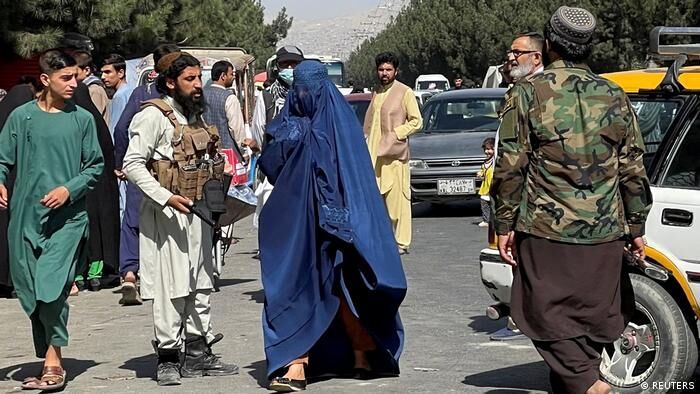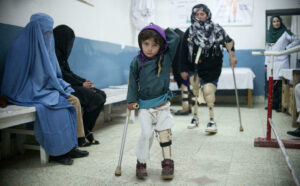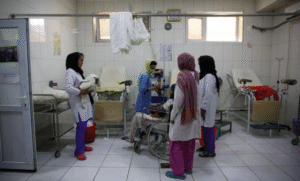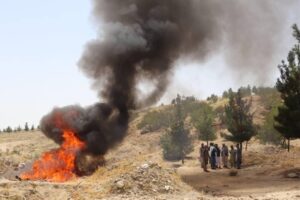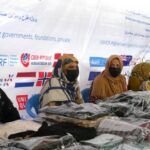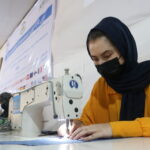Author: Mahdi Mozaffari
In response to the recent actions of the interim government of Afghanistan, particularly the controversial “Promotion of Virtue and Prevention of Vice” law, the European Parliament held a special session on Thursday, September 20, to discuss the dire human rights situation, especially concerning women in Afghanistan. This session was convened due to increasing international concerns regarding widespread human rights violations in Afghanistan, particularly the severe restrictions imposed on women. The outcome of this session was the adoption of a resolute resolution, which passed with an overwhelming majority. This resolution was adopted amid rising international pressure on the Afghan government due to its gender-based restrictions and human rights violations.
During this session, the European Parliament emphasized that such laws and restrictions are in complete contradiction to international norms and lead to the severe repression of the human rights of Afghan women and girls.
The resolution, which was passed with 565 votes in favor, eight against, and 43 abstentions, explicitly condemns the widespread violation of international norms by the current Afghan government. In this resolution, the Afghan government is accused of severely repressing women and girls, ethnic minorities, human rights defenders, and sexual minorities. It clearly indicates that the policies of the current government have not only led to a severe humanitarian crisis in Afghanistan but have also pushed the country into international isolation.
The European Parliament has warned that these widespread repressions and continued narrow-minded policies of the Afghan government could lead to a larger crisis at both regional and global levels. Therefore, this resolution represents a significant shift in international positions against the Afghan government.
Gender Apartheid: The Dire Situation of Afghan Women under Interim Rule
The tragic status of Afghan women under the interim government has revealed new dimensions of human rights violations. The European Parliament has taken a significant step by describing the current situation of women in Afghanistan as “gender apartheid” and calling for its recognition as a “crime against humanity” in international law. This term accurately refers to the systematic and pervasive nature of gender discrimination in Afghanistan. In fact, the European Parliament, through this resolution, has emphasized that the oppression of women and the severe restrictions imposed on them are not merely human rights violations; they constitute a form of crime against humanity that requires an immediate and comprehensive response from the global community.
This characterization by the European Parliament aligns with previous concerns raised by UN experts, including Richard Bennett, who described the treatment of women by the Afghan government as a “crime against humanity.” These experts believe that the imposition of severe and systematic restrictions on women in Afghanistan is a clear example of gender apartheid. Currently, Afghan women protesters have repeatedly called for this situation to be recognized as an international crime in their protests against government policies. The continuation of these protests indicates that Afghan women are still fighting for their rights, although the current conditions have significantly diminished hopes for change.
At present, gender apartheid is not defined as an independent crime in international law; however, given the critical situation in Afghanistan, efforts are underway to have this concept recognized as an international crime. These efforts are part of amendments to certain provisions of international law, aimed at addressing this horrific crime and supporting the rights of Afghan women. Recognizing gender apartheid as an international crime would be a significant step toward establishing legal mechanisms for prosecuting and punishing those responsible for this crime, potentially leading to international sanctions and practical measures to protect Afghan women.
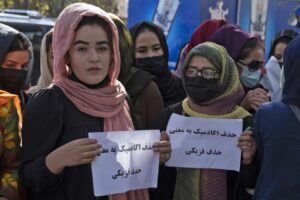
Condemnation of Engagement with Current Afghan Leaders and Calls for New Sanctions
In this resolute action, the European Parliament has also condemned the behavior of governments that bolster the current regime in Afghanistan through engagement. This stance is based on human rights principles and international commitments that prohibit any interaction with governments involved in widespread human rights violations. The resolution, which was passed with a strong majority, expresses the deep concern of the European Union regarding the approach of certain countries toward the current government in Afghanistan. Although parliament members did not specifically name countries, evidence suggests that in recent years, in addition to neighboring and regional countries, some members of the European Union have engaged directly or indirectly with Afghan rulers. Such interactions have not only strengthened the legitimacy of the current government but have also facilitated ongoing human rights violations in the country.
In addition to condemning engagement with the interim government, the European Parliament has called for increased sanctions against members of this group. The European Union currently has some senior officials of the Afghan government under individual sanctions, but the European Parliament believes these measures are insufficient and that broader sanctions should be imposed on this regime. It is still unclear what areas the new sanctions will cover, but they are expected to impact the government’s economic activities and financial resources. The European Parliament has emphasized that sanctions should be applied in a manner that does not harm ordinary people and that only the leaders of the government should be pressured.
Moreover, the European Parliament has stressed the importance of supporting Afghan women and girls. Members of Parliament have called for the active participation of Afghan women in all political, social, and economic spheres of the country and have urged the international community to support the rights of this vulnerable group. The European Parliament has also highlighted the necessity of continuing humanitarian aid to the people of Afghanistan, requesting that the EU deliver this assistance directly to those in need and prevent it from reaching the government. This approach reflects the European Parliament’s particular sensitivity to the situation of the Afghan people and the importance of direct access to humanitarian aid.
Thomas Nicholson, the EU Special Representative for Afghanistan, recently announced that the EU has provided €300 million in aid to Afghanistan this year, with these funds reaching the Afghan people and NGOs directly. Such direct assistance has become even more critical in the current crisis, as the current Afghan government uses these aids to consolidate its power. However, the United Nations has warned that Afghanistan continues to face a severe humanitarian crisis and requires further support from the international community.
Overall, the resolution by the European Parliament indicates that the EU is concerned about the situation in Afghanistan and human rights violations in the country. By condemning engagement with government leaders and calling for increased sanctions, the EU has sent a clear message to the Afghan government. Additionally, the Parliament’s emphasis on supporting Afghan women and girls and continuing humanitarian aid demonstrates that the EU is committed to assisting the people of Afghanistan. Nonetheless, improving the situation in Afghanistan and establishing an inclusive and sustainable government will require greater cooperation from the international community and pressure on the country’s powerful leaders to uphold human rights and international commitments.

